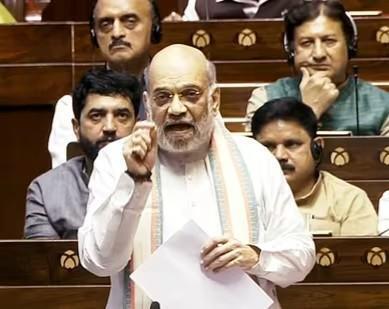
Blocking House Functioning for Political Gain is Not Good: Shah
In a recent statement, Home Minister Amit Shah emphasized the importance of debate in the Parliament, stating that “debate must take place in a democracy.” However, he also cautioned that blocking the House from functioning in the name of opposition for someone’s narrow political gain is not acceptable. Shah’s remarks come at a time when the Indian Parliament has been witnessing frequent disruptions and adjournments, with opposition parties protesting against the government’s policies and decisions.
Shah’s statement is a timely reminder of the significance of democratic institutions and the need for constructive political discourse in the country. In a democracy, the Parliament is the highest representative body of the people, and it is essential that it functions smoothly and efficiently to make laws and policies for the nation. However, when the House is blocked or disrupted, it not only hinders the legislative process but also undermines the faith of the people in the democratic system.
The Home Minister’s remarks are also a call to opposition leaders to ensure that the House functions impartially for the nation’s benefit. Political parties have a responsibility to engage in constructive debate and discussion, rather than resorting to obstructionist tactics to score political points. By doing so, they can help build consensus and facilitate the passage of legislation that benefits the country.
The recent disruptions in the Parliament have been sparked by a range of issues, including the government’s handling of the economy, its policies on key sectors such as healthcare and education, and its handling of national security issues. While these are legitimate areas of concern, the opposition’s tactics have been criticized for being obstructionist and lack of constructive engagement.
Shah’s statement is also significant in the context of the ongoing standoff between the government and the opposition over key issues such as the Citizenship Amendment Act (CAA) and the National Register of Citizens (NRC). While the opposition has legitimate concerns about these laws, their refusal to engage with the government and participate in the legislative process has only heightened tensions and undermined the credibility of the democratic system.
In conclusion, Shah’s statement is a timely reminder of the importance of democratic institutions and the need for constructive political discourse in the country. The Parliament must function smoothly and efficiently to make laws and policies for the nation, and opposition leaders must ensure that the House functions impartially for the nation’s benefit. By doing so, they can help build consensus and facilitate the passage of legislation that benefits the country.
Sources:
https://repository.inshorts.com/articles/en/PTI/973e8ec4-c6ff-45c9-9ae8-8e0d748d5624






